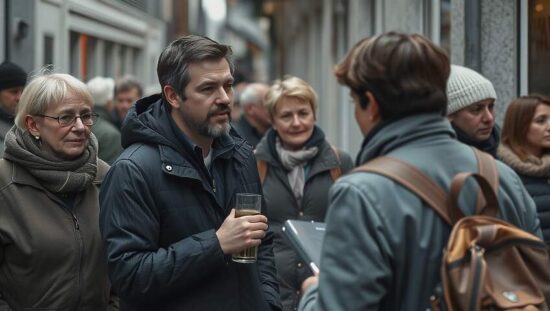CDU Extricates Itself from Union Downturn
A significant divergence from the broader national trend is emerging in North Rhine-Westphalia (NRW), Germany’s most populous state, as the Christian Democratic Union (CDU) under Minister-President Hendrik Wüst demonstrates remarkable resilience just eighteen months ahead of the next state election scheduled for Spring 2027.. Recent polling data, conducted by the Institute for Opinion Research (INSA) and published by “Bild”, reveals a stark realignment of voter preference that poses serious questions for both the ruling Green Party and the Social Democratic Party (SPD).
The survey, based on responses from 1,000 individuals collected between November 11th and 18th, places the CDU comfortably in the lead with a striking 36 percent of the potential vote. This figure represents a clear departure from the challenges currently faced by the wider conservative bloc at the federal level. The Greens, Wüst’s coalition partner, are struggling, evidenced by their current support at only 12 percent – a worrying decline potentially signaling a growing dissatisfaction with the ruling agenda.
The SPD, historically a dominant force in NRW, faces an even more precipitous fall. Having seen its power base significantly eroded, the party now commands just 19 percent of voter intention. This marks a dramatic shift for a region once considered an SPD stronghold, suggesting a potential crisis of identity and relevance for the traditional workers’ party. While the far-right Alternative for Germany (AfD) sustains a foothold with 16 percent, the Left party maintains a modest presence at 7 percent. The Free Democratic Party (FDP), vital for any potential coalition formation, finds itself precariously positioned with just 5 percent, facing a genuine battle to secure representation in the state parliament.
The CDU’s apparent success under Wüst’s leadership necessitates scrutiny. While a cautious optimism exists amongst CDU strategists, deeper analysis is required to understand the factors driving this momentum. Is it a reflection of effective regional governance, a response to federal-level SPD policies, or a consequence of voter realignment driven by broader socio-economic anxieties? The disquieting decline of the Greens and the SPD points to underlying currents of voter dissatisfaction that demand more than superficial explanations. The polling results underscore the volatile nature of German politics and signal a potentially transformative state election in 2027, potentially redrawing the political landscape of North Rhine-Westphalia.





